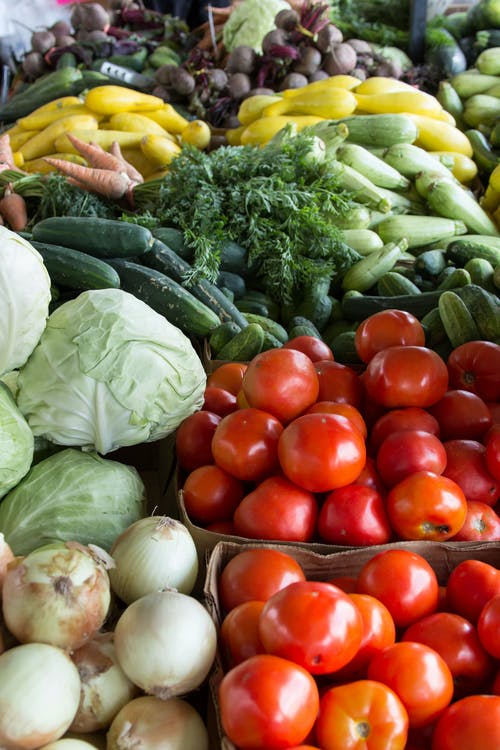
Organic Food – Is It Really Healthier?
By Charlotte Foster BSc (Hons), MSc, RD
What Exactly Is Organic Food?
The main difference between organic and non-organic food has to do with how it is produced. Whilst the standards do vary internationally, in the EU organic producers are obliged to comply with a set of regulations in order to classify their product as organic. These regulations include ensuring livestock is free range, there is limited use of naturally derived pesticides, no GM ingredients, no antibiotics, no growth stimulating hormones and no artificial colours or preservatives.
Organic vs Non-Organic
There is evidence to show that thanks to the EU regulations, organic food does indeed show lower levels of pesticide residue, antibiotics and hormones than conventionally produced food. Worries about the effects of these unnatural substances on the human body are normally what lead people to opt for organic produce.
Visually, there is often not much difference between organic and non-organic food, but you might sometimes notice that your organic veg can be slightly smaller and not so perfectly formed. In terms of taste, many people cannot tell the difference between the two. However, if you manage to source organic fruit/veg/meat/dairy from a local supplier, the freshness can often result in a much better flavour!
Another difference is that organic food tends to have a much higher price, which can be very off putting for those with a lower budget. Organic farms tend to be a lot smaller than conventional farms and have a higher cost of production due to avoiding pesticides and other chemicals that speed up the process. Therefore, the premium price for organic food cannot be avoided.
So, Is Organic Healthier?
Whilst organic food has been proven to have lower levels of chemicals, it is important to remember that food is not our only source of chemical exposure. Where we live, how we travel, the cleaning products we use and so much more can influence this. There is equally no concrete evidence to suggest the levels of pesticides, antibiotics, hormones and additives you find in non-organic food are actually detrimental to our health.
Several studies have been carried out which suggest that organic food can potentially provide more nutrients such as vitamin C, iron and magnesium. However, there isn’t quite enough evidence to support this claim just yet and the difference in your health will likely be minimal. As long as you are including lots of nutrient dense foods in your diet, it should not matter if they are organic or not.
There is also evidence to show that people who consistently eat organic foods have a healthier gut and suffer less with weight gain than those who don’t eat organic foods. However, this is probably down to the fact that people who chose to eat organic tend to lead a healthy lifestyle in other aspects, with a nutrient dense/balanced diet.
There are a lot of bold health claims when it comes to organic food. From preventing cancer, to curing acne to reducing inflammation… the list goes on. The problem is that the evidence against these claims is largely inconclusive and there are much more effective ways to treat your health problems. However, one trial has wielded an interesting observation, suggesting that switching to organic dairy can improve skin conditions such as allergic dermatitis.
What is my view?
In my view, there are many facets to the organic debate! If you feel more comfortable eating organic foods and you are in a position to afford it then go for it! At present, there is no concrete evidence to show that it is healthier or more nutritious to eat an organic diet compared to consuming non-organic foods. I will always advocate that it is much more important to focus on having a balanced diet full of whole grains, lean proteins, healthy fats and lots of fibre then worry about whether it Is organic or not.
